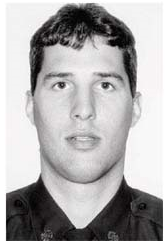The Essence of Technology
I saw a post on the User Interface Engineering blog about the 'Essence' of software program design. The key concept in thinking about the essence of a system is an understanding that a program is more than just processes and widgets. From the article:
Interaction with a product is more than how it’s used or how it behaves. It’s about a connection between two sides. One side is the customer, but the other side is much more than a product or service. To many people, the character and essence of a product and its company are identical. So, what is the essence of your product?
The post is in the context of software design but I think it also could certainly apply at a macro level to an organization or HR department, and I suppose also at a micro level, to an individual's 'essence' of what they offer in the workplace. In HR Technology I think these concepts are especially important, as HR solutions typically impact the entire organization, not just the 'back-office' made up of power users.
So how can a designer of HR software, or an HR Technology professionals in an organization 'loosen up' and show a bit of humanity?
Humor - Can you inject a bit of humor into the product, in the design, or in the user interface? If you can't or are not willing to really strive for humor, can you at least work towards a design that attempts to incorporate some fun into the experience? For powers users that spend the majority of their workday using the system, or for line managers that may only interact with the technology periodically, injecting Flickr - brian corsan element of fun to the process and design can go a long way towards increased satisfaction and adoption. While it usually is not appropriate to copy design and process flow from popular consumer sites, at least review the ones you enjoy using the most, and see what elements or attributes you may be able to re-purpose into your HR Technology solution.
Personality - It has been said that for software companies the culture of an organization permeates the software the company designs and markets. Since so many organizations purchase HR Technology solutions from the same dozen or so vendors, how can you ensure that the design and look of the solutions you deploy to your employees adequately reflect your culture? Take a look at a few large company recruiting sites, chances are you will find some that look and feel almost exactly the same since the largest companies tend to all buy ATS solutions from one of the same half dozen vendors.
We did an an experiment in HR Technology class that showed the job search pages for Neiman-Marcus and Delta Dental are almost exactly the same and many more of these examples can be found. Don't settle for the vendor 'template' unless you are comfortable with a bland interface that lots of other companies use.
Emotion - How does your technology solution actually make your users feel? Angry, confused, frustrated, or perhaps bored? Users want to feel good about their work, and for many information workers the way the systems they must interact with all day are a primary driver of this feeling. Strip away all unnecessary elements that can detract from the user's ability to complete the task, get the information, contribute to the knowledge store, etc. If possible, allow more experienced users the ability to bypass 'extra' steps, and help text or tutorials once they have demonstrated a level of proficiency.
Connection - The very best designed technologies can foster a sense of connection between users and the organization. This can be done with the incorporation of 'social' tools in enterprise systems, (tools like instant messaging, tagging, or real-time collaboration) are one way to develop connection, in this example with other people. Alternatively, a sense of connection to the system can be enhanced by empowering the users with increased ability to customize the interface according to their own needs, presenting lists of frequently used functions in more prominent positions, and giving more visible and auditory feedback throughout the process. Think about popular consumer sites like Amazon or Ebay, that 'remember' what you have been interested in in the past, and automatically present you similar choices on your next visit.
Many HR Technology solutions are getting more sophisticated, fancy, and full of the latest in design elements to make the interface more attractive, functional, and fun. That generally is a good thing. But that may not be always what is needed, as many data intensive, high-volume functions might be better served with a simply, bare-bones design reminiscent of the old green screen days. The key point is to evaluate the HR Technology systems you use, or are considering in the context of who will actually use them, and the impact the design will have on these users, whether they be managers, staff, or candidates.
What great HR Technology design examples should I be checking out? Hit me up in the comments.

 Steve
Steve

